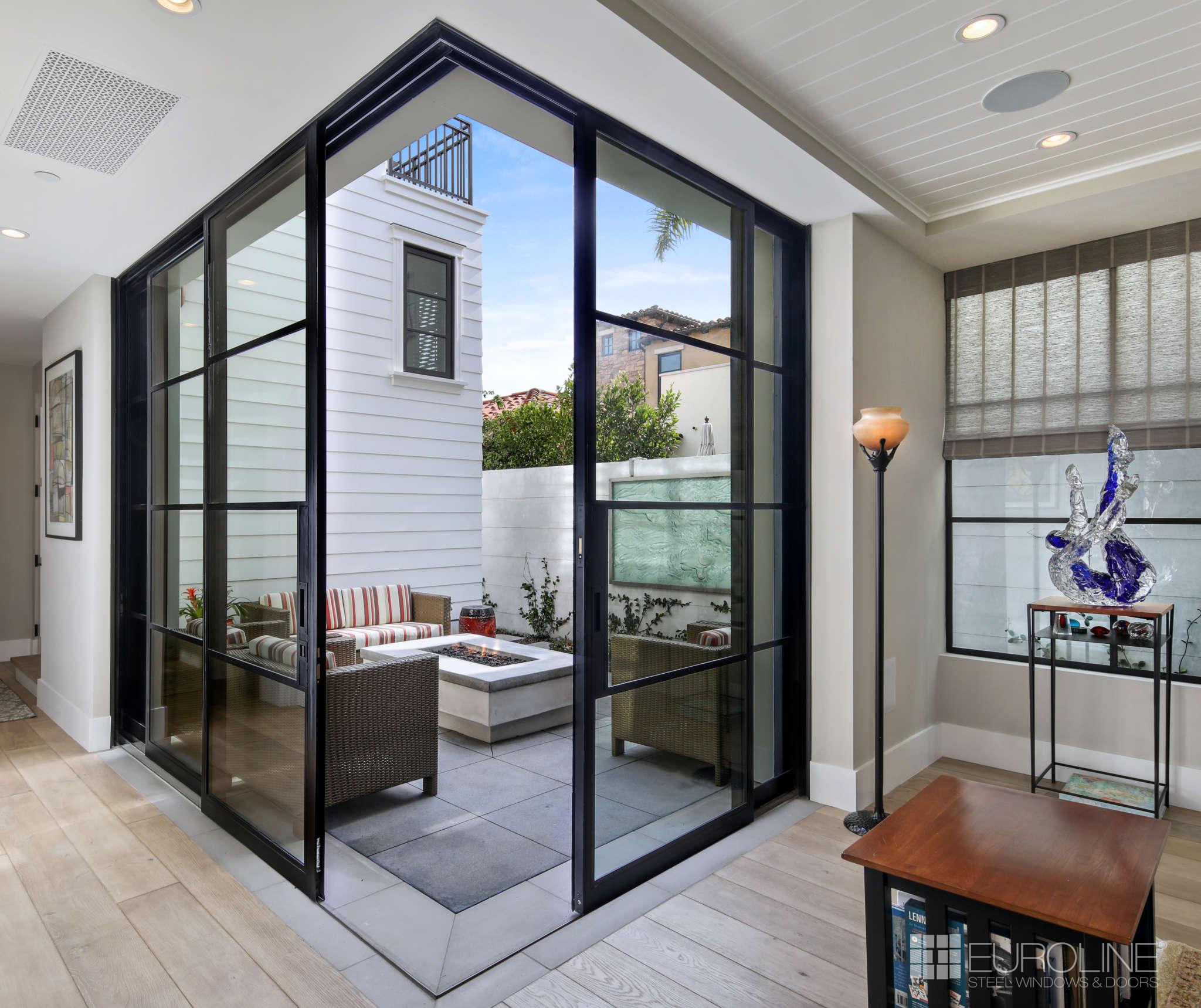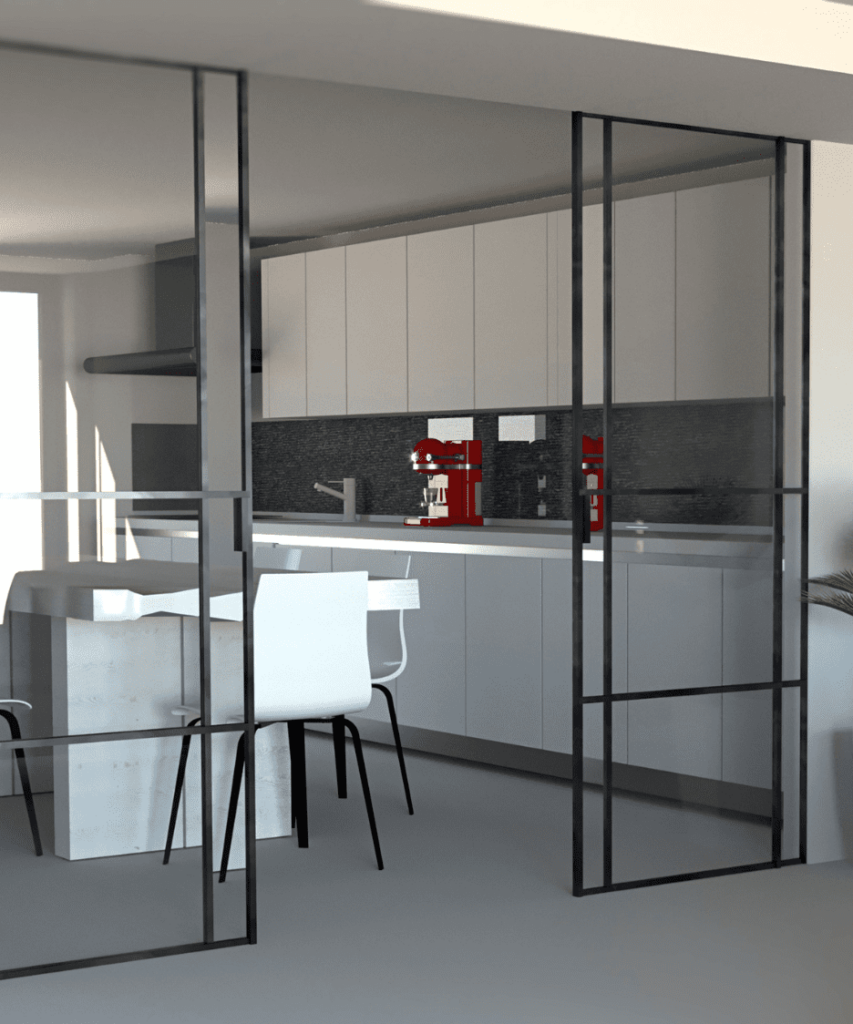
Modern Folding Doors vs. Sliding Doors: Which is Best?
When it comes to selecting doors for your home, choosing between modern folding doors and sliding doors can be challenging. Both options offer unique features that can enhance your living space, add functionality, and align with your home’s design. This guide explores the features, benefits, and potential downsides of folding and sliding doors, focusing on how each can contribute to space-saving designs and aesthetics.
1. Modern Folding Doors vs. Sliding Doors: Which is Best for Your Home?
Choosing the right type of door for your home involves more than just aesthetics. Doors should provide functionality, improve space efficiency, and match the overall style of your home. Let’s dive into the specific features of both folding and sliding doors.
Folding Door Features
Folding doors, also known as bi-fold or accordion doors, consist of multiple panels that fold and stack together when opened. They are highly popular for wide entryways, connecting indoor and outdoor spaces seamlessly.
1. Wide Openings and Flexible Space Management
One of the most significant benefits of folding doors is their ability to create expansive openings. When fully opened, folding doors maximize space and enhance the flow between rooms or between indoor and outdoor areas.
2. Compact and Space-Saving Design
Folding doors are ideal for homes with limited space. Since they fold upon themselves, they don’t require as much wall space as traditional swing doors, making them an excellent choice for compact areas.
3. Natural Light Enhancement
With large glass panels, folding doors allow plenty of natural light into your home, brightening up interior spaces and creating an open, airy feel. This is especially beneficial for homes with limited windows.
4. Customizable Materials and Finishes
Modern folding doors are available in various materials, with aluminium being one of the most popular due to its durability and low maintenance. Aluminium folding doors offer a sleek, modern look, are lightweight yet sturdy, and resist corrosion, making them an ideal choice for both indoor and outdoor use.
For more:
Explore our range of aluminium door options at Wyndor Aluminium Doors.
2. Sliding Door Features
Sliding doors are typically made of two or more large panels, one of which slides horizontally to open. Unlike folding doors, they don’t take up additional floor space when opened, making them a popular choice for contemporary homes.
1. Efficient Space Utilization
Since sliding doors move along a track, they don’t require any extra space to open. This makes them ideal for areas with limited space, such as balconies, patios, and room dividers.
2. Seamless Indoor-Outdoor Transitions
Sliding doors create a smooth transition between indoor and outdoor spaces, making them a popular choice for patios and garden access. The large glass panels provide a clear view of the outdoors, enhancing the connection to nature.
3. Enhanced Security and Durability
Modern sliding doors are equipped with secure locking mechanisms, making them as safe as traditional doors. Aluminium-framed sliding doors are especially robust, offering high durability and resistance to wear and tear.
4. Minimalist Aesthetic Appeal
Sliding doors often have a sleek, modern look, with minimal framing to maintain an open feel. This minimalist design complements contemporary homes and provides an elegant, unobstructed view.
Suggestion:
Learn more about modern home door designs at HomeDoorSolutions.

3. Pros and Cons of Each Door Type
Comparing the advantages and disadvantages of folding and sliding doors can help you determine which is the best fit for your home.
Pros and Cons of Folding Doors
| Pros | Cons |
|---|---|
| Maximizes openings for a seamless indoor-outdoor flow | Requires more wall space for folding panels |
| Allows ample natural light to flow in | Higher initial cost than traditional doors |
| Compact and space-saving when fully open | May require regular maintenance for smooth operation |
| Offers a modern, customizable look with various materials | Limited to larger openings and wider spaces |
Pros and Cons of Sliding Doors
| Pros | Cons |
|---|---|
| Efficient space utilization, perfect for small areas | Limited opening width compared to folding doors |
| Sleek and modern aesthetic | Fixed panels reduce ventilation options |
| Durable and secure, especially with aluminium frames | Can be challenging to clean in-between tracks |
| Easy to operate and maintain | Less flexible in terms of configuration |
4. Choosing Between Folding and Sliding Doors
When selecting between folding and sliding doors, it’s essential to consider your home’s specific needs, aesthetic preferences, and space availability. Here are some key factors to help you decide:
1. Space Availability
If you have limited wall space but want a large opening, sliding doors might be a more practical option as they require minimal clearance to operate. For larger spaces or areas where a seamless flow is essential, folding doors can create a broader opening.
2. Design Preferences
Both folding and sliding doors provide a modern look, but each has a unique aesthetic. Folding doors give a more dynamic, layered appearance when open, while sliding doors provide a sleek, continuous view.
3. Ease of Maintenance
Sliding doors are generally easier to maintain, as they have fewer moving parts. Folding doors, however, may require periodic maintenance to ensure smooth folding and unfolding.
4. Natural Light and Views
If maximizing views and natural light is your priority, sliding doors with large glass panels might be more appealing. On the other hand, folding doors allow for more flexible openings, creating an open wall effect that enhances airflow and light flow.
Suggestion:
For further insights on creating open, airy interiors, visit HomeSpaceDesigns.
5. Aluminium Features in Modern Doors
Aluminium frames are common in both folding and sliding doors due to their durability, lightweight nature, and corrosion resistance. Here’s why aluminium stands out as a material for modern door options:
Environmentally Friendly: Aluminium is recyclable, making it a sustainable choice for eco-conscious homeowners.
Long-Lasting Durability: Aluminium withstands the elements without rusting, making it ideal for exterior doors exposed to rain and humidity.
Energy Efficiency: Aluminium doors can be fitted with thermal breaks to improve insulation, reducing heat transfer and helping maintain a comfortable indoor environment.
Aesthetic Flexibility: Aluminium frames can be powder-coated in various colors, allowing you to customize the look to match your home’s decor.
Frequently Asked Questions (FAQs)
1. Are aluminium folding and sliding doors durable enough for outdoor use?
Yes, aluminium is highly durable and resistant to rust, making it ideal for both indoor and outdoor applications.
2. Which door type offers better security?
Both door types offer secure locking mechanisms, especially when reinforced with aluminium frames. Ensure that your doors have high-quality locks for added safety.
3. How do I maintain folding and sliding doors?
Regular cleaning and occasional lubrication of the tracks and hinges will keep both door types functioning smoothly.
4. Can I install a folding or sliding door in a small room?
Yes, sliding doors are especially suited for small rooms as they require minimal floor space. Folding doors, while more compact than swing doors, need more wall space for full operation.
Conclusion
Ultimately, both folding and sliding doors offer unique benefits that can enhance the functionality and aesthetic of your home. Folding doors are perfect if you prioritize a wide-open feel and flexible space management. Conversely, sliding doors excel in areas where space efficiency and streamlined design are key.
By considering your specific needs, space, and design preferences, you can make an informed decision that enhances your home’s comfort and style.


